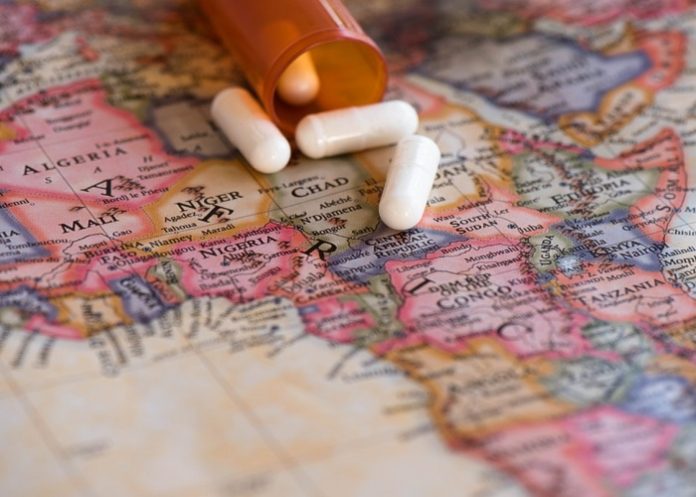Africa’s pharmaceutical sector is witnessing an influx of foreign interest, with Chinese companies leading the charge. This surge comes as Africa’s $25bn pharmaceutical market continues to grow, driven by increasing demand for generics and treatments for non-communicable diseases (NCDs), observes Sena Voncujovi in The Africa Report.
He writes:
China’s involvement in Africa’s pharmaceutical industry reflects a broader strategy to expand its global influence, utilising its manufacturing strength and surplus capacity. This mirrors China’s role in other sectors like cement, where its investments have spurred growth.
For Chinese pharmaceutical companies, Africa offers high-margin opportunities that are scarce in saturated domestic markets. Health spending per capita in Africa was less than $35 in 2019, compared with the global average of $160 and $3 000 in high-income nations, signalling significant growth potential.
Demonstrating the positive effects of sound policies and infrastructure on development, China’s health spending grew from $42 per capita in 2000 to $535 in 2019.
This shift in spending explains, perhaps, why Chinese firms see opportunity rather than risk in Africa, unlike other pharmaceutical companies.
By 2030, Africa’s pharmaceutical market is expected to expand across all major segments, including prescription drugs (6.5% CAGR), generics (10% CAGR), over-the-counter medicines (7.1% CAGR), and medical devices (12.1% CAGR). Despite this growth, Africa still imports more than 80% of its pharmaceutical products, compared with India’s 5%, due to limited manufacturing capacity.
USAID gap
USAID cuts under the Trump administration slashed $60bn in global aid, exacerbating this problem and weakening African health systems, while potentially worsening medicine shortages.
This raises the question: can China fill the gap?
For Africa, partnering with Chinese investors is a chance to reduce dependency on imports, strengthen local production capacity, and address urgent health challenges.
China’s macroeconomic landscape is driving its increased focus on Africa’s pharmaceutical sector. Domestically, stringent environmental regulations, oversupply issues, and slowing demand have made international markets more appealing. China’s export controls on pharmaceutical technologies, including traditional Chinese medicine (TCM) and certain medical devices, further incentivise domestic production for international markets.
On the other hand, African countries are increasingly tightening regulations to ensure drug safety on imported pharmaceuticals, such as the Lomé Initiative, to combat substandard medicines.
This regulatory shift means that if Chinese pharmaceutical companies want to maintain their presence in Africa’s growing market, relocating their production to the continent itself will be strategic.
The Covid-19 pandemic underscored the importance of local pharmaceutical production, and many Chinese companies have responded. Several have established Covid-19 vaccine plants across Africa, contributing to the continent’s vaccine supply.
Chinese giants like Sansheng Pharmaceutical and Fosun Pharma are making significant strides. Sansheng’s Ethiopian facility produces 10m IV bags and 5bn solid tablets annually, reducing the country’s reliance on imports.
Fosun Pharma’s Côte d’Ivoire Park, which will produce antimalarial drugs and antibiotics by 2025, aims to help fight malaria, which causes 95% of deaths in the WHO African region. Fosun’s business will cover 17 Francophone countries, including Senegal, Cameroon and Mali.
China’s increased investment
In Kenya, Fok Medical’s factory in Tatu Industrial Park produces disposable surgical gowns and trauma care products, addressing the urgent need for medical supplies.
Another notable project is Jijia International Medical Technology’s collaboration with Zambia to build a cholera vaccine plant, enhancing regional public health.
During the pandemic, BGI Group set up Fire Eye labs in Ethiopia, Angola and Gabon for virus detection and nucleic acid testing. In Rwanda, BGI also launched a cervical cancer screening initiative.
Traditional medicine collaboration between Africa and China is another unique aspect of this partnership.
The Guangdong-Macao Traditional Chinese Medicine Technology Industrial Park (GMTCM Park) has partnered with Mozambique to establish a TCM Centre in Maputo, where local doctors are trained in acupuncture and herbal medicine. This partnership could serve as a model for similar initiatives across Africa.
At the ninth Forum on China-Africa Co-operation (FOCAC), President Xi Jinping reaffirmed China’s commitment to supporting local pharmaceutical production in Africa through increased investment. This signals more support from both the private sector and governments. To maximise these opportunities, African stakeholders must take deliberate action.
Local pharmaceutical production
The pandemic, coupled with USAID’s recent cuts, emphasises the urgency of local pharmaceutical production. By leveraging Chinese investment and FOCAC’s commitments, African nations can reduce dependency on imports and build resilient health systems.
First, governments on the continent should prioritise the development of specialised pharmaceutical industrial parks modelled on Ethiopia’s Kilinto Industrial Park. These hubs can attract Chinese investments, foster local production, and reduce dependency on imports.
Second, strategic investments should target Active Pharmaceutical Ingredient (API) production. Collaborations with Chinese financiers such as China-Africa Development Fund (CADFUND) and global institutions like the European Investment Bank or African financial institutions like the African Development Bank can establish API hubs, boosting self-sufficiency.
Finally, China’s expertise in modernising Chinese traditional medicine presents an opportunity for African countries to develop their own traditional medicines.
Partnerships like the one between Shandong University of Traditional Chinese Medicine and Kenyan institutions show how joint research can modernise African traditional medicine and potentially open avenues for exporting African medicines to China.
Africa’s pharmaceutical sector is poised for rapid growth, driven by Chinese investments that address critical supply gaps and align with Africa’s development goals.
For Chinese companies, Africa represents a high-growth market, while for Africa, these partnerships offer a pathway to self-sufficiency and improved healthcare. To ensure these collaborations benefit Africa fully, careful planning and targeted policies are crucial.
By fostering strategic partnerships and implementing key policies, Africa can unlock the full potential of its pharmaceutical sector, paving the way for a healthier, self-reliant future.
Sena Voncujovi is a China-Africa Policy Analyst and FOCAC liaison at Development Reimagined. Sena was formerly the Editor-in-chief of Peking University’s Africa Think Tank (PATT)
See more from MedicalBrief archives:
Zambia to manufacture cholera vaccine
How Africa can boost local health manufacturing, procurement
SA case study sheds light on how to develop pharma manufacturing

